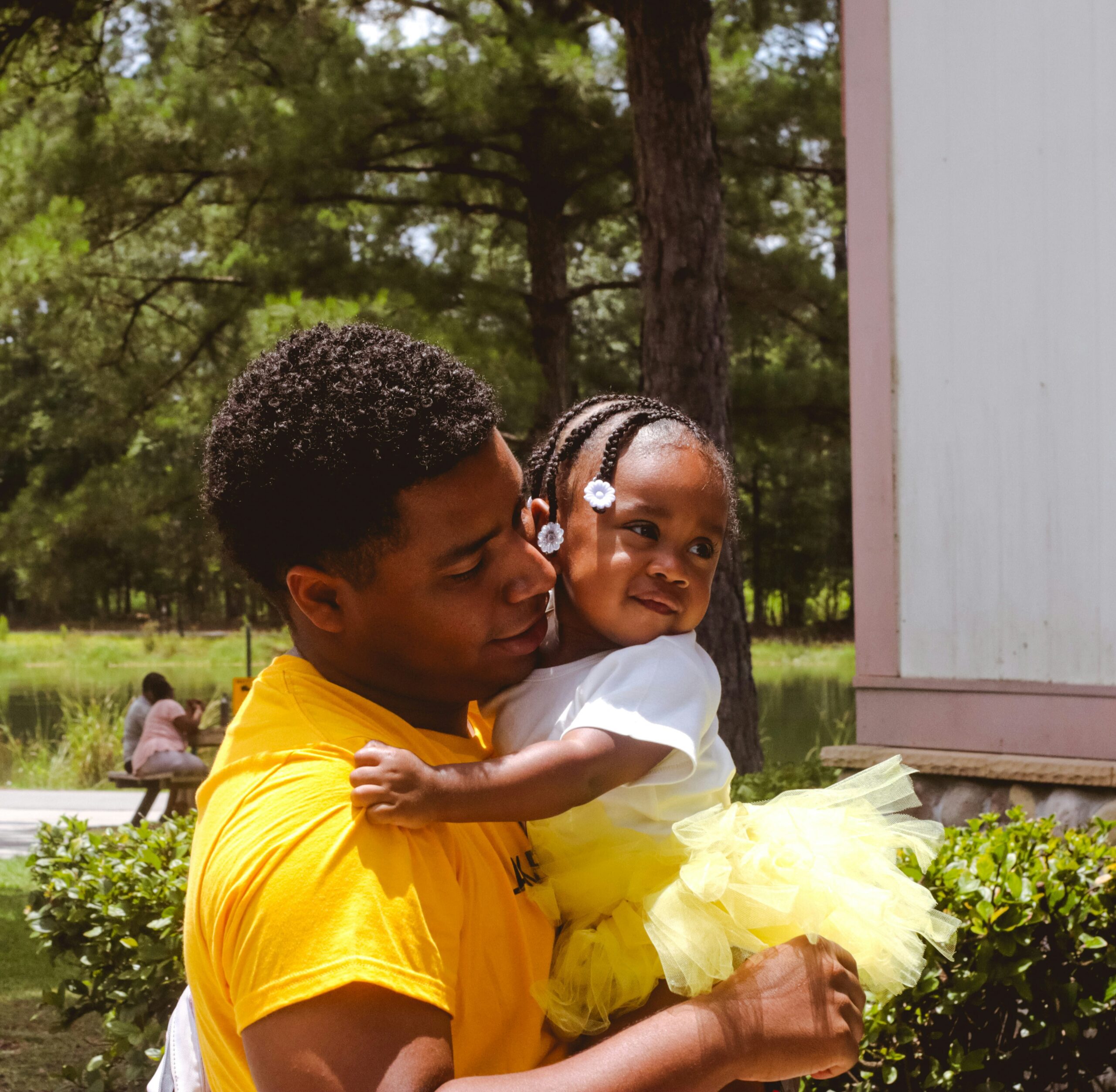By: Ted Bunch
Co-parenting is something I never planned for. It’s a path in life you don’t anticipate taking until you find yourself walking it, sometimes stumbling but always moving forward. The lessons I’ve learned on this particular path have been immeasurable. My co-parenting journey has taught me more about communication, respect, and love than I ever imagined.
When my daughter’s mother and I first separated, the idea of sharing custody was daunting. I had to learn how to navigate the delicate balance of shared custody, sometimes the hard way. My daughter lived primarily with her mom. We were committed to her life between households as seamlessly and lovingly as possible. Through this experience, I’ve realized that the foundation of co-parenting isn’t only about logistics — who picks up, when, where, etc. — but about something much more profound: respect, partnership, cooperation, compromise, appreciation, and open communication.
Because my daughter’s mom and I were committed to not only raising this beautiful child together and respecting our history, it was not difficult to support each other as co-parents; this also proved to strengthen our friendship. When my daughter was about a year old, I met a woman who would become my wife two years later.
Establishing clear boundaries for all parties involved is crucial in creating the foundation of a new romantic relationship. I quickly learned how important it would be to create an atmosphere of inclusion between my daughter’s mom and my new relationship. It’s easy to see co-parenting as a series of negotiations, but I’ve learned it’s more about fostering a sense of security for everyone involved. My new partner, stepping into an already established familial dynamic, needed to feel secure in her role, just as my co-parent deserved to feel respected and valued as my child’s mother.
It was important for me to be transparent and forthcoming — no secrets, no hidden agendas. But more importantly, I realized the power of inclusivity. Healthline states clear, concise, direct, and respectful communication is crucial to successful co-parenting. As our relationship deepened and we married, we invited my daughter’s mom to family gatherings, birthdays, and holiday celebrations. These were more than just gestures; they were affirmations that we were all committed to our child’s security and happiness, and she would never have to choose between us because we were choosing her.
In raising our daughter, consistency and reliability became our anchor. We made joint decisions and were intentional about overcommunicating. While the two households may have had some variance with rules, we were all aware of what was happening in both homes. As her parents, we did not keep secrets about our daughter from each other, and we presented a united front.
It wasn’t about control; it was about love. Love for our children, who needed stability and predictability more than anything else. It meant checking our egos and leading with our hearts. Our daughter was a constant reminder of why we were doing this in the first place.
One of my most important lessons is that co-parenting isn’t about winning. It’s not about who has the better argument or who’s right in a disagreement. It’s about our children — ensuring they grow up knowing they are loved and their parents are committed to their happiness and well-being.
Understanding the other parent’s perspective has been vital. It’s not always easy to see things from someone else’s point of view, especially when emotions run high, but it’s essential. Co-parenting requires compromise, patience, and sometimes, just stepping back and asking, “What’s best for our child?”
Co-parenting has been a journey that has stretched, challenged, and ultimately made me a better father. It’s taught me that love isn’t always easy, but it’s always worth it. It’s taught me that my children’s well-being comes before my pride, grievances, and anything else.
This journey isn’t just about raising children in separate households; it’s about raising them in an environment of love, respect, and unity. It’s about showing them that even when life doesn’t go as planned, we can still come together, be a family, and give them the best of us.
We don’t enter a marriage or a relationship with the goal of it to end. When relationships don’t work out, we must not take that out on the child by not being involved. Our children need their dad as much as their mom. I encourage us to put any negative feelings aside and make every attempt to work out a healthy and respectful co-parenting relationship with your child’s mother.
And that, I’ve learned, is what matters most.
Take action:
- Prioritize Open and Respectful Communication: Establish clear, concise, and respectful communication with your co-parent. This includes being transparent about decisions, events, and your child’s well-being. Consistently over-communicate to ensure that you are both on the same page about your child’s needs and routines.
- Create a Sense of Partnership and Inclusivity: Foster an inclusive atmosphere for all parties involved, including your new partner and the co-parent. Engage in joint family gatherings and celebrations to ensure your child feels secure and supported by everyone in their life.
- Focus on Your Child’s Stability and Security: Ensure consistency and reliability between households, working together to create a stable and predictable environment for your child. Present a united front, even if some household rules vary, and always prioritize your child’s well-being.
- Practice Compromise and Patience: Be willing to compromise and see the situation from the other parent’s perspective. Co-parenting requires setting aside personal pride and grievances to focus on what’s best for your child.
- Commit to a Loving and Cooperative Environment: Lead with love and respect, demonstrating that even when life doesn’t go as planned, parents can still come together to provide a nurturing and unified environment. Always remember that the goal is to raise children in a space filled with love, respect, and support, regardless of the circumstances.
